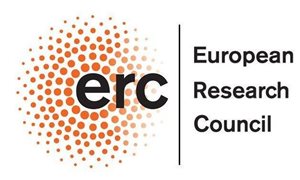
All fundamental processes inside cells rely on protein-protein interactions. Understanding biological processes therefore requires a thorough and comprehensive understanding of protein-protein interactions. Proximity biotinylation recently emerged as a powerful interaction proteomics technology, that can be used to identify direct and indirect interactions between proteins in vivo.
Proximity biotinylation workflows typically require CRISPR-based genetic manipulation of target cells to fuse the proximity biotinylation enzyme to target genes of interest and can therefore not be applied to primary cells.
Irene Santos- Barriopedro, Guido van Mierlo and Michiel Vermeulen, theme cancer development and immune defense, overcame this bottleneck by fusing a proximity biotinylation enzyme, TurboID, to ProteinA (ProtA-Turbo). ProteinA binds with a high affinity to immunoglobulins. Thus, upon target cell permeabilization, the ProtA-TurboID enzyme can be targeted to proteins of interest using an endogenous antibody against the bait protein. Addition of exogenous biotin then triggers bait-proximal protein biotinylation.
These biotinylated bait-proximal proteins can subsequently be enriched from crude cell lysates using streptavidin conjugated beads and identified by quantitative mass spectrometry. They demonstrated this workflow by targeting Emerin, H3K9me3 and BRG1. Amongst the main findings, these experiments revealed that the essential protein FLYWCH1 interacts with a subset of H3K9me3-marked (peri)centromeres in human cells.
The ProtA-Turbo enzyme represents an off-the-shelf proximity biotinylation enzyme that facilitates proximity biotinylation experiments in primary cells and can be used to understand how proteins cooperate in vivo and how this contributes to cellular homeostasis and disease. These results were published in Nature Communications.
Related news items

T cell immunity is directed by tetraspanin CD53
5 July 2022 T cells are immune cells that are key for the defense against pathogens and cancer. T cells depend on the membrane protein CD45 to initiate T cell receptor signaling, but how CD45 is controlled at the molecular level is poorly understood. go to page
A single protein complex balances the very first lineage decision of cells in human: towards foetus or placenta
21 June 2022 The international group of researchers spearheaded by Dick Zijlmans and Hendrik Marks together with colleagues from KU Leuven, examined which proteins are associated with the chromatin and how this affects gene transcription. go to page
Dutch Society of Clinical Chemistry Science & Innovation Award for the team of Hans Jacobs
14 June 2022 The team of Hans Jacobs pioneers on the development of personalized diagnostics to measure minimal residual disease in patients with multiple myeloma. go to page
European grants for groundbreaking Radboudumc research Professors Roshan Cools and Peter Friedl receive ERC Advanced Grant
26 April 2022The European Research Council (ERC) is awarding grants to Roshan Cools and Peter Friedl, both professors at Radboudumc. While Cools will investigate how brains control behaviour in (stressful) situations, Friedl will work on developing a new cancer therapy.
go to page
Saponin-based adjuvant-induced dendritic cell cross-presentation is dependent on PERK activation published in Cellular and Molecular Life Sciences
20 April 2022 Lisa Huis in ‘t Veld, Nataschja Ho and colleagues from the team of Gosse Adema published in Cellular and Molecular Life Sciences that Saponin-based adjuvant-induced dendritic cell cross-presentation is dependent on PERK activation. go to page
Rubicon grants awarded to three RIMLS researchers
19 April 2022Three researchers have received Rubicon funding from NWO/ZonMw. This will enable Elke Muntjewerff, Laura de Vries and Laurens van de Wiel to do research at a foreign research institute for the next two years.
go to page